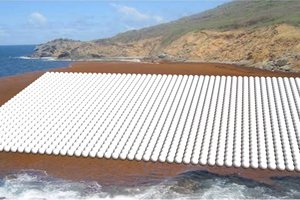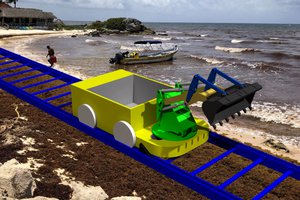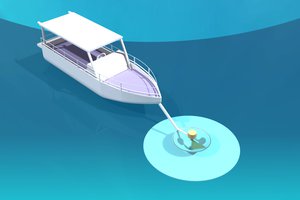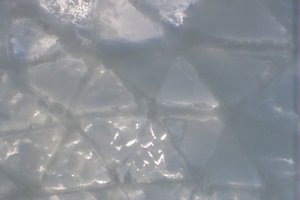Desertification
source: http://www.un.org/en/events/desertificationday/background.shtml
Desertification is a phenomenon that ranks among the greatest environmental challenges of our time. Yet most people haven't heard of it or don't understand it.
Although desertification can include the encroachment of sand dunes on land, it doesn't refer to the advance of deserts. Rather, it is the persistent degradation of dry land ecosystems by human activities — including unsustainable farming, mining, overgrazing and clear-cutting of land — and by climate change.
What Causes Desertification
Desertification occurs when:
- the tree and plant cover that binds the soil is removed.
- It occurs when trees and bushes are stripped away for fuelwood and timber, or to clear land for cultivation.
- animals eat away grasses and erode topsoil with their hooves.
- intensive farming depletes the nutrients in the soil.
Wind and water erosion aggravate the damage, carrying away topsoil and leaving behind a highly infertile mix of dust and sand. It is the combination of these factors that transforms degraded land into desert.
So who is affected?
The USDA has published a map showing areas of the world in danger of desertification.
- Areas that are either deserts, or at risk of being deserts are:
- Most the west coast of North America
- all of the middle east, up as far as the top of the top of Kazakhstan (Russia!)
- Practically everywhere in Africa except the bits around the equator.
- 90% of Australia either is either "very dry", or in high to very high danger of becoming a desert.
- Then southern Europe, (south Italy, Greece and Spain)
- Half of Brazil.
- And if you're in the UK (like me) then weirdly most of the East Anglia is either at moderate or high risk of desertification.
source: http://www.nrcs.usda.gov/wps/portal/nrcs/detail/national/nedc/training/soil/?cid=nrcs142p2_054003
What I'm saying is this isn't just a "poor county/poor people" problem, it affects all of the developed world.
23 hectares of land per minute are lost, that's around 20 million tons of grain that could have been grown, but can't over the year. this drives up demand and cost for food sources.
Having established that the problem is pretty serious, the question is how to fix it?
(again from the UN site)
What can be done?
- Reforestation and tree regeneration
- Water management - saving, reuse of treated water, rainwater harvesting, desalination, or direct use of seawater for salt-loving plants
- Fixating the soil through the use of sand fences, shelter belts, woodlots and windbreaks
- Enrichment and hyper-fertilizing of soil through planting
- Farmer Managed Natural Regeneration (FMNR), enabling native sprouting tree growth through selective pruning of shrub shoots. The residue from pruned tress can be used to provide mulching for fields thus increasing soil water retention and reducing evaporation.
So what's the project?
The project will focus on developing a project to help address three of the actions identified by the UN.
- Water management, (providing a way for water to be targetted to areas of land where watering at the surface is wasteful)
- Soil fixation, (providing a way to bind the soil to stop it beeing washed or blown away)
- Soil enrichment, (providing a way for soil to be enriched with fertilisers, in a targetted way, -targetting fertilisers so that they may be used in smaller amounts to stop runoff into waterways)
How will this be done?
The project will seek to design a lattice framework, designed to hod the soil in place in the same way that a plant root would, the lattice should be made of a bio-degradable polymer and should be hollow to allow for water and liquid fertilisers to be delivered directly to the soil that is to be "saved".
The lattice will have a pipe attachment at opposing ends, allowing for connectivity to an irrigation system for liquid delivery, and allowing liquids to pass through the lattice to more chained together in series.
So deserts + seeds = acres of farming land?
Well, no, it's not quite that simple.
Deserts are large...
 Danny
Danny

 Anteneh Gashaw
Anteneh Gashaw


 Kenji Larsen
Kenji Larsen
maybe simply planting trees is the a better idea? Why so complicated?